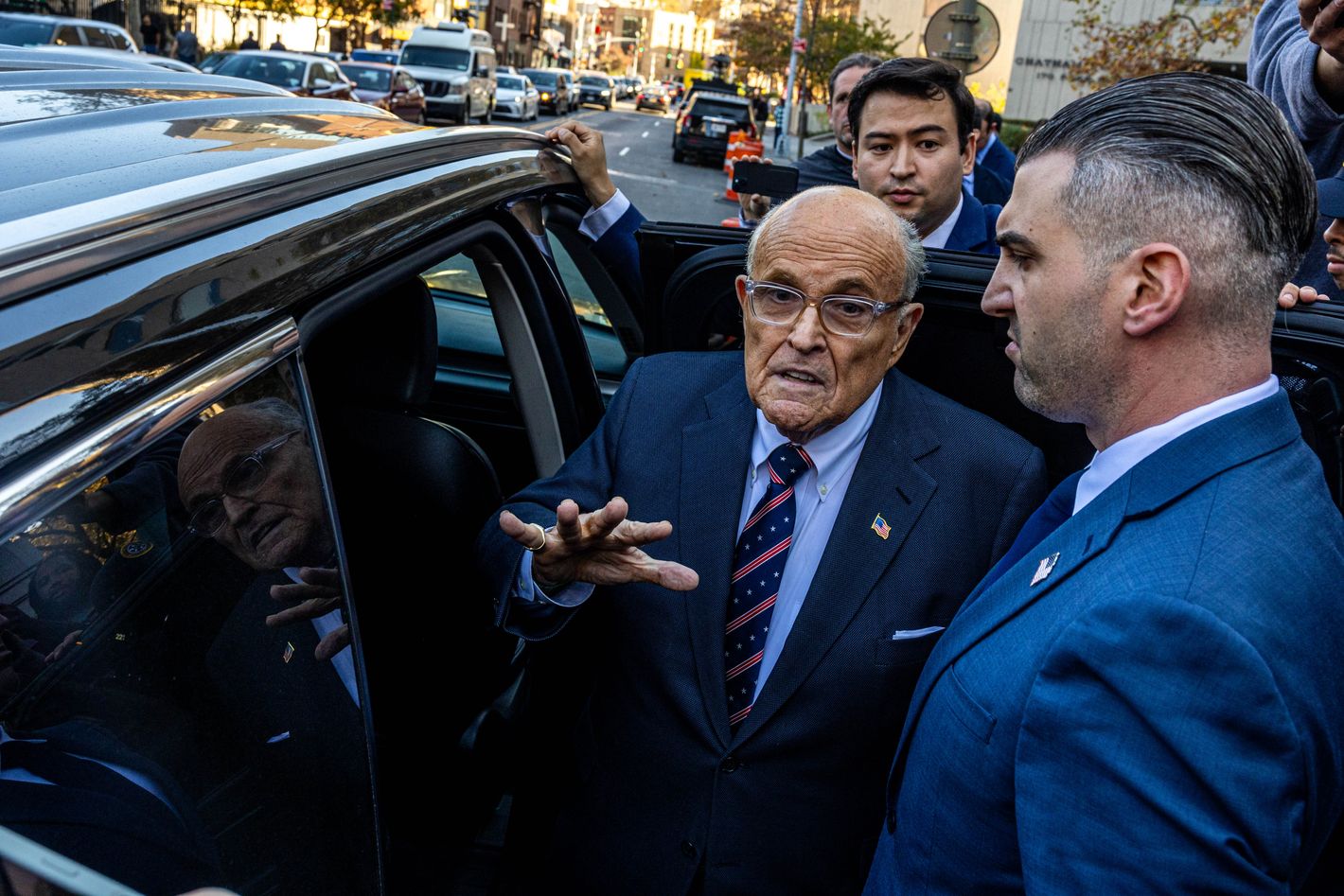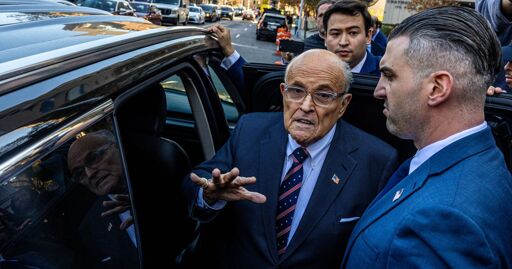
Photo: Alex Kent/Getty Images
Between Republicans’ big election losses, the Supreme Court’s tariffs skepticism, and shutdown-related problems, last week was rough for Donald Trump. So apparently he soothed himself on Friday by pardoning 77 people involved in his effort to subvert the 2020 election, including Rudy Giuliani.
Practically, the pardons don’t really help Trump’s allies. The president can only issue pardons for federal offenses, and no one on the list was charged with a federal crime related to the 2020 election. Several people, including Giuliani, are facing state charges, but Trump can’t do anything about that.
The pardons were announced by Justice Department Pardon Attorney Ed Martin, who posted a seven-page proclamation to X on Sunday night.
“This proclamation ends a grave national injustice perpetrated upon the American people following the 2020 Presidential Election and continues the process of national reconciliation,” the document begins.
It’s signed by Trump and dated November 7, which just happened to be the five year anniversary of Giuliani’s infamous Four Seasons Total Landscaping Press Conference.
Important pardon of Alternate Electors of 2020!! pic.twitter.com/iuDGv9fqyy
— Eagle Ed Martin (@EagleEdMartin) November 10, 2025
The names listed in the proclamation include multiple high-profile figures who took part in Trump’s “fake electors” scheme, as Politico summarized:
Among those who received the “full, complete and unconditional” pardons were Rudy Giuliani, who helped lead an effort to pressure state legislatures to reject Joe Biden’s victories in key swing states; Mark Meadows, Trump’s chief of staff in 2020 and a crucial go-between for Trump and state officials; John Eastman and Kenneth Chesebro, two attorneys who helped devise a strategy to pressure then-Vice President Mike Pence to overturn the election on Jan. 6, 2021; Boris Epshteyn, a longtime Trump adviser; and Sidney Powell, a conservative attorney who launched a fringe legal assault on election results in key swing states.
Trump has already pardoned more than 1,000 January 6 rioters, and the language in the new proclamation is incredibly broad; supposedly it applies to “all United States citizens,” not just the 77 people listed. It reads:
I, DONALD J. TRUMP, do hearby grant a full, complete, and unconditional pardon to all United States citizens for conduct relating to the advice, creation, organization, execution, submission, support, voting activities, participation in or advocacy for or of any slate or proposed slate of presidential electors, whether or not recognized by any state of state official, in connection with the 2020 presidential election, as well for any conduct relating to their efforts to expose voting fraud and vulnerabilities in the 2020 presidential election.
In fact, there is only one person who explicitly isn’t covered. It says toward the end: “This pardon does not apply to the President of the United States.” So Trump is putting off the thorny issue of whether the president can pardon himself.
But this is all largely symbolic anyway, as it seems unlikely that any future administrations are going to try to build a federal case against people involved in Trump’s 2020 schemes. Election interference charges were brought against Trump’s allies in Georgia and Arizona (Giuliani is involved in various other legal dramas, but those cases are all state-level too). While the Georgia case in limbo, the Arizona case is set to go to trial in January 2026 — regardless of Trump’s pardons. But hey, it’s always nice to have a “Get Out of Jail Free” card, just in case.
More Politics
Is the Government Shutdown Ending? Live UpdatesWhy Democrats Couldn’t Hold Out Any Longer on the Government ShutdownGhislaine Maxwell Is Chasing a Trump Commutation
From Intelligencer - Daily News, Politics, Business, and Tech via this RSS feed

